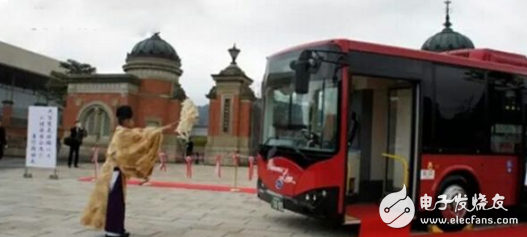China is the world's largest automotive consumer market, and if it chooses to phase out traditional fuel vehicles, it could fundamentally reshape the entire industry. As China's strength grows, so does its influence in the global electric vehicle (EV) sector. BYD, a leading Chinese manufacturer of new energy vehicles, has emerged as a symbol of China's technological advancement and is steadily expanding internationally. The future of Chinese electric cars looks very promising.
Carlos Ghosn, former chairman of the Mitsubishi Motors Alliance, once stated that over the next decade, the pursuit of advanced driving technology and the goal of achieving a pollution-free society will bring transformative changes to the automotive industry—changes not seen in the past 50 years. While some have dismissed his predictions as mere speculation, others are watching closely. However, one Chinese company has already made its mark: BYD. In just six years, its electric buses have been deployed in over 200 cities across 50 countries on six continents. This achievement highlights the growing global recognition of Chinese EV innovation.

On December 1st, Okinawa, Japan, was greeted by a cool breeze and a pleasant climate. At Naha New Port, the arrival of BYD’s K9 pure electric bus fleet marked a significant moment for the Japanese market. The event featured traditional Japanese ceremonies, with 10 sleek blue buses lined up at the port, blending seamlessly with the blue sky and sea of Okinawa. The "BYD" logo on the front of each bus signaled a historic milestone: BYD had become the first and only Chinese automaker to successfully enter the Japanese auto market.
Over 200 attendees, including officials from Japan’s Cabinet Office, Okinawa Prefectural Government, local business leaders, and media representatives from both China and Japan, witnessed the moment when "Made in China" re-entered the Japanese market. The K9, equipped with cutting-edge lithium iron phosphate battery technology, bidirectional inverter charging, wheel drive systems, keyless entry, and electronically controlled air suspension, was designed to meet the unique challenges of the Japanese market, including earthquake resilience. It even features a VTOL function, acting as a mobile power source that can supply electricity to external devices like refrigerators or induction cookers.
This K9 fleet is the first pure electric bus group in Okinawa’s history and will serve as a shuttle bus for port passengers, transporting them to a nearby transfer station. Though the route is short, the significance of this zero-emission vehicle is immense. It represents the first experience many international visitors will have with Chinese electric mobility, showcasing the potential of green transportation.
Recently, China announced it has begun researching the timeline for phasing out traditional fuel vehicles. This statement has sparked widespread interest and concern among global media and the automotive industry. If China, the world’s largest car market, moves away from fuel vehicles, it could trigger irreversible changes in the global auto industry.
While foreign automakers have focused on entering the Chinese market, BYD has taken the opposite approach, expanding its reach globally. Currently, its electric vehicle production accounts for 13% of the world’s total. As a leader in electric vehicle technology, BYD has mastered core components such as batteries, motors, and electronic controls. According to Liu Xueliang, General Manager of BYD Asia Pacific Automotive Sales Division, the company’s entry into Okinawa is not an accident but part of its broader strategy to establish itself as a global player in the automotive industry.
Industry analysts highlight four natural advantages that Chinese companies have in developing electric vehicles. First, the government’s green economic policies support the growth of environmentally friendly vehicles. Over the years, China has promoted a low-carbon, sustainable development model and actively encouraged global cooperation in building a shared human future. This includes the rapid development of the new energy vehicle industry.
Second, China has the world’s largest new energy vehicle market. In 2016 alone, more than 500,000 new energy vehicles were sold, with electric vehicles making up the majority. Today, one out of every two electric vehicles on the road is in China.
Third, China leads the world in clean energy investment, which supports the development and adoption of eco-friendly vehicles. Additionally, China has abundant lithium reserves, making the future of lithium battery technology very promising.
Professor Hiroshi Miyuki from the University of Science in Japan believes that in the next 10 to 20 years, Chinese-made electric cars may soon be seen on highways around the world. This vision reflects the growing confidence in China’s role as a global leader in the electric vehicle revolution.
Wall-Mounted Digital Signage,Wall-Mounted Screen,Hanging Display,Digital Lcd Display
Shenzhen Risingstar Outdoor High Light LCD Co., Ltd , https://www.risingstarlcd.com